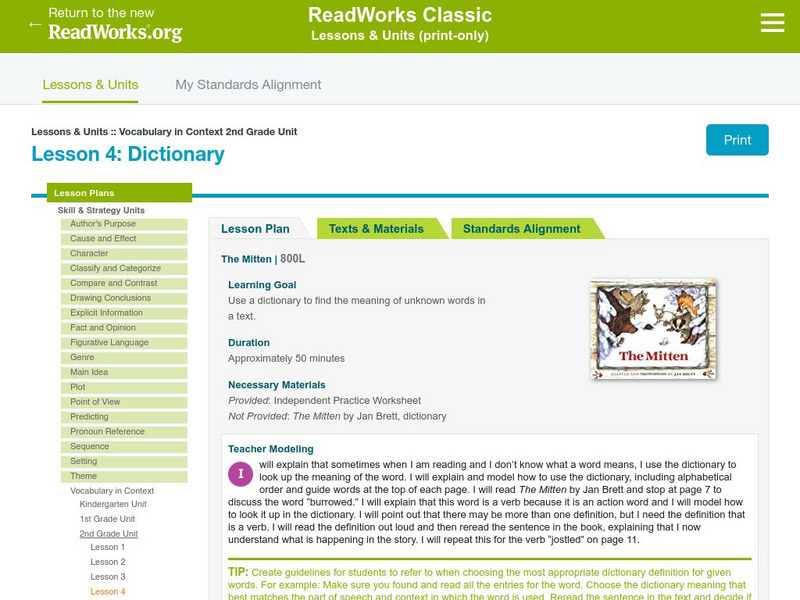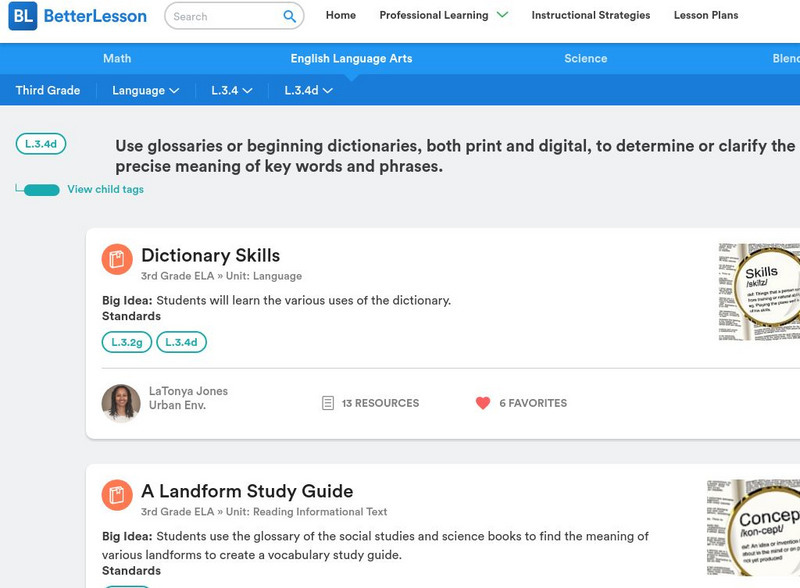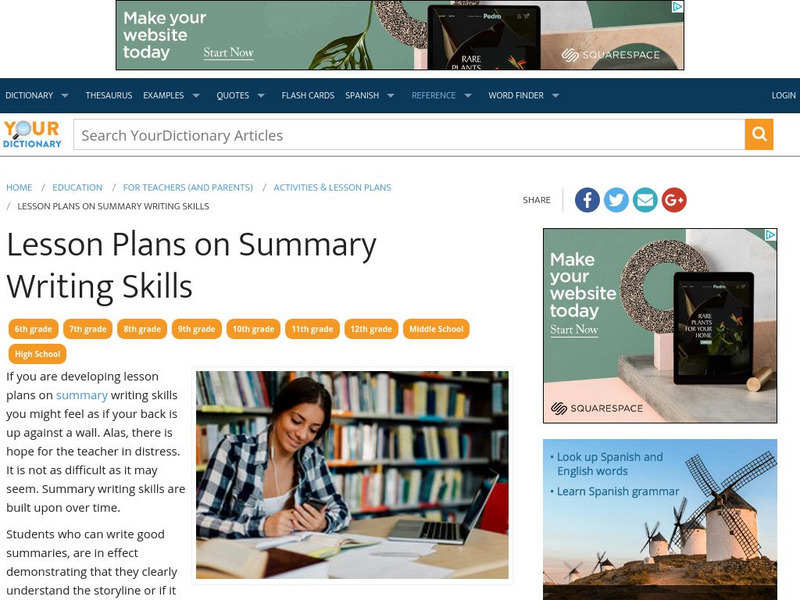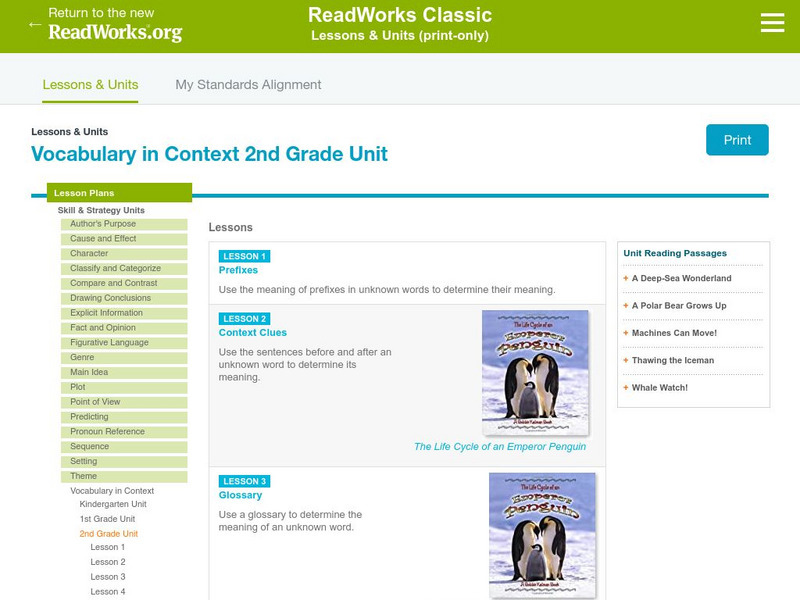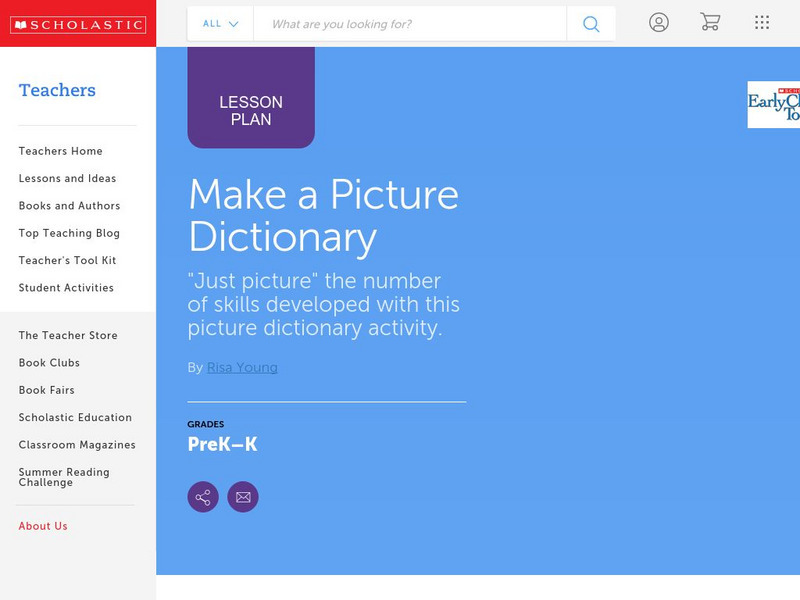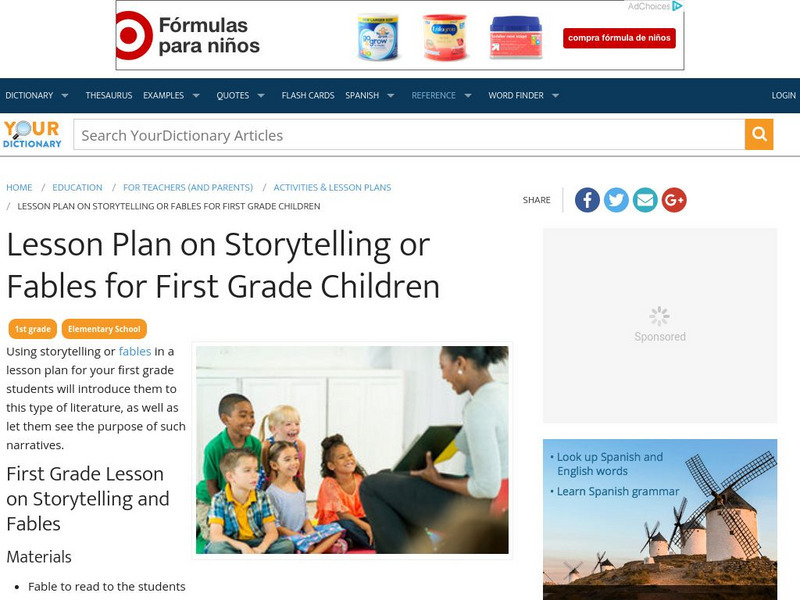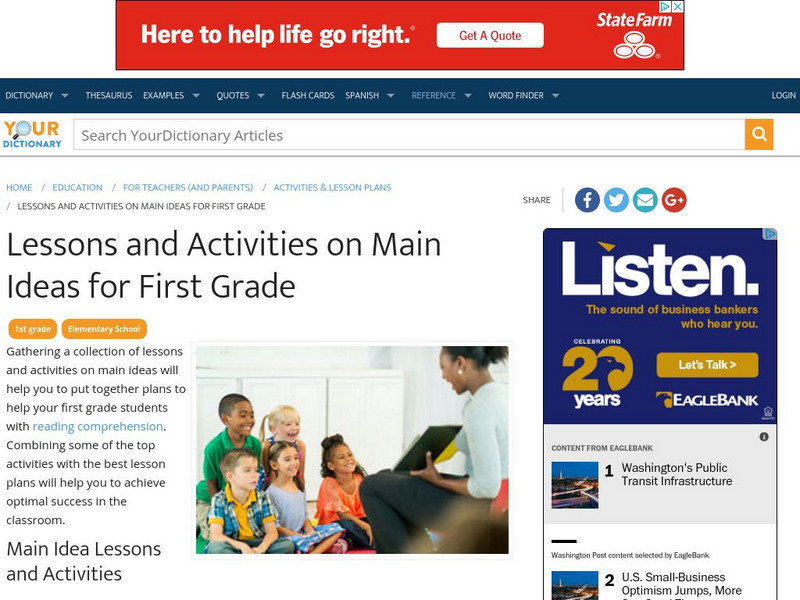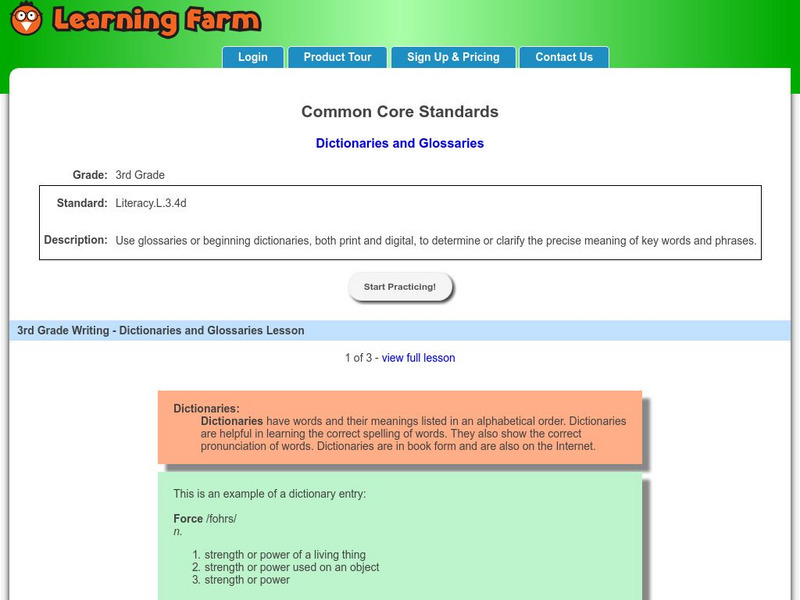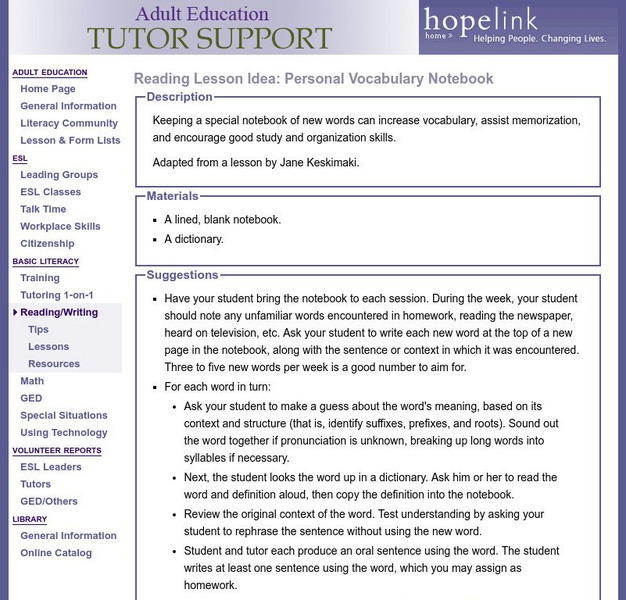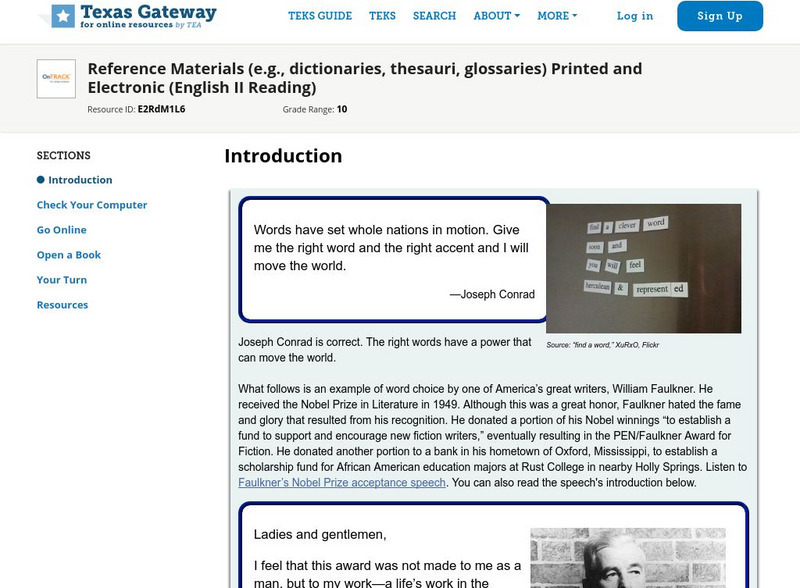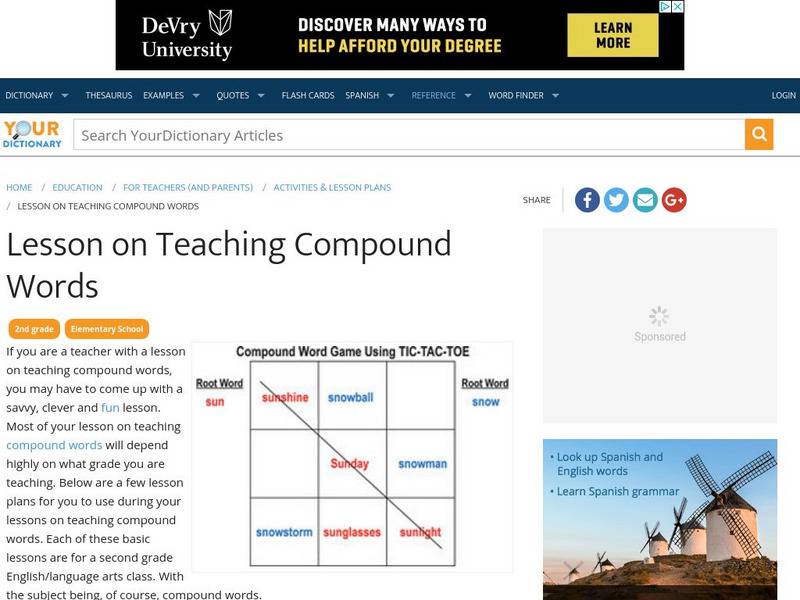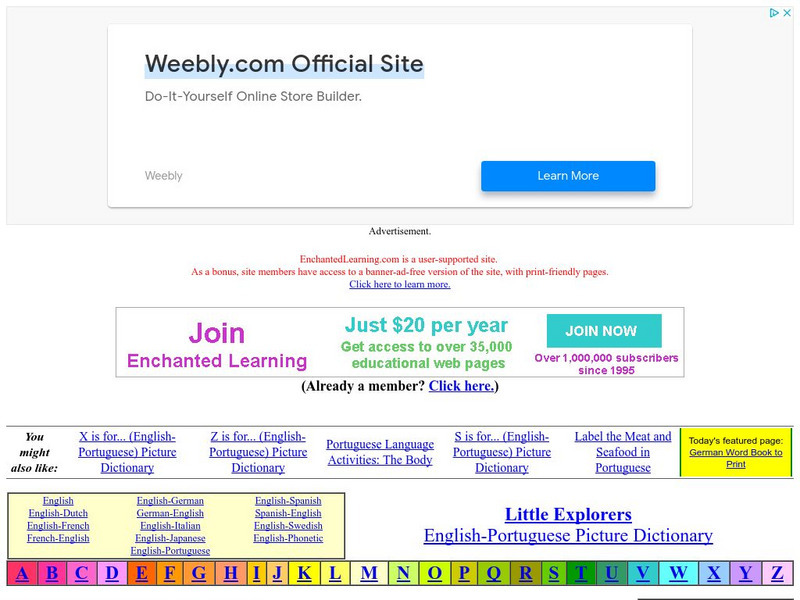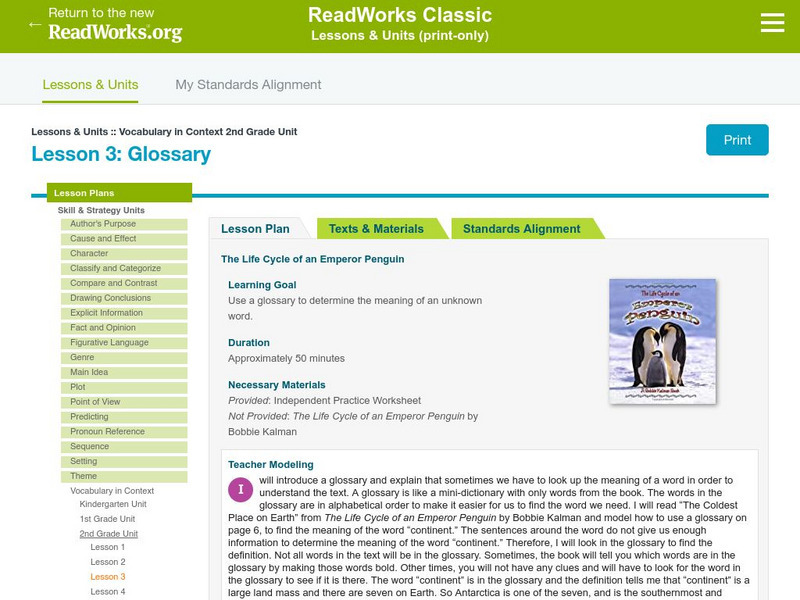Love To Know Media
Your Dictionary: Sample Lesson Plans for 7th Grade Computer Terms
This site offers links to a list of computer terms middle schoolers need to know; it also offers links to lesson plans teaching things like using spreadsheets.
ClassFlow
Class Flow: Dictionary
[Free Registration/Login Required] Students will recognize the functions of dictionaries and the types of information available in dictionaries used in schools. They will learn the differences between dictionaries and thesauruses....
Read Works
Read Works: Vocabulary in Context 2nd Grade Unit: Dictionary
[Free Registration/Login Required] This website provides a lesson plan in which students learn to use a dictionary to determine the meanings of unfamiliar words. The lesson plan utilizes the book The Mitten by Jan Brett and includes...
Better Lesson
Better Lesson: L.3.4d: Use Glossaries or Dictionaries to Determine Meaning
Links to 2 lessons and activities that build student skills in standard L.3.4d: Use glossaries or beginning dictionaries, both print and digital, to determine or clarify the precise meaning of key words and phrases.
Love To Know Media
Your Dictionary: Lesson Plans on Summary Writing Skills
This article focuses on how to help teachers write lesson plans that will aid young scholars in learning to write clear, concise summaries of movies and literary works.
Read Works
Read Works: Grade 2: Four Lesson Unit: Vocabulary in Context
[Free Registration/Login Required] A series of four lesson plans designed to develop students' vocabulary skills including understanding prefixes, using context clues, and using a glossary and a dictionary. Lessons are based on the books...
Scholastic
Scholastic: Make a Picture Dictionary
Children will create a picture dictionary to encourage the development of letter-sound recognition and fine-motor and creative-thinking skills, and increase their awareness about informational text.
Love To Know Media
Your Dictionary: 2nd Grade Lesson Plans for Forming Possessives
This article focuses on teaching 2nd graders to form possessive. It provides two complete lesson plans with activities for teaching them how to form possessives.
Love To Know Media
Your Dictionary: Lesson Plan on Storytelling or Fables for First Grade Children
This is a lesson plan for teaching storytelling and/or fables to first graders including listening, reading, lesson learned (moral), and follow up ideas.
Love To Know Media
Your Dictionary: Lessons and Activities on Main Ideas for First Grade
This site offers links to several lesson plans for teaching main ideas to first and second graders; it also provides and explains some activities for teaching the main idea to first graders.
Learning Farm
Learning Farm: Common Core Standards Dictionaries and Glossaries
View a lesson on using dictionaries and glossaries to determine the meaning of words. Test your skills using Test Mode or Game Mode.
Hopelink
Hopelink: Reading Lesson Idea: Personal Vocabulary Notebook
This site has a simple but direct approach to building your vocabulary. Keeping a special notebook of new words can increase vocabulary, assist memorization, and encourage good study and organization skills. L.11-12. 6 Vocabulary
ClassFlow
Class Flow: Dictionary Use
[Free Registration/Login Required] This resource introduces students to dictionaries. It covers what a dictionary is used for, what types of information you will find in a dictionary, guide words and their purpose, and how to use a...
Texas Education Agency
Texas Gateway: Reference Materials: Printed and Electronic (English Ii Reading)
This lesson focuses on using resources such as dictionaries, thesauruses (or thesauri), and glossaries to find and use words that will improve not only your reading skills but also your writing skills. L.11-12.4c References
Love To Know Media
Your Dictionary: Lesson on Teaching Compound Words
This lesson focuses on teaching compound words and is specifically designed for second grade; however, it could be adjusted for other grades.
Other
Japanese online.com
This is a free learning service for people who wish to study the Japanese language. Japanese learners can find and talk to one another and form language exchange relationships with native Japanese speakers. You'll also find four Beginner...
Enchanted Learning
Enchanted Learning: Little Explorers: English Portuguese Picture Dictionary
This is a great tool for visual learners and students of English and/or Portuguese. The site features pictures and illustrations--great sample vocabulary words--for a letter of the alphabet. Some words also include labeling activity...
Enchanted Learning
Enchanted Learning: Little Explorers: English Portuguese Picture Dictionary
This is a great tool for visual learners and students of English and/or Portuguese. The site features pictures and illustrations--great sample vocabulary words--for a letter of the alphabet. Some words also include labeling activity...
Sophia Learning
Sophia: Vocab Tip: Create a Sentence
This video lesson provides a tip to learn new vocabulary. Look up the word in online dictionary, and then create a short sentence using the word including context clues and a familiar topic. Real Player is required.
Other
Wisewire: Grade 3 Playlist: Clues to Unknown Words Using Known Roots
A dictionary is not the only way to figure out the meaning of new words. Readers also can look for familiar word parts. These word parts might appear in other words that readers already know. By looking for familiar word parts, including...
Read Works
Read Works: Vocabulary in Context 2nd Grade Unit: Glossary
[Free Registration/Login Required] A lesson in which learners learn to use a glossary to determine the meanings of unfamiliar words. Lesson utilizes the book The Life Cycle of an Emperor Penguin by Robin Johnson and Bobbie Kalman and...
ReadWriteThink
Read Write Think: Shared Spelling Strategies
Contains plans for a lesson that will provide students with strategies for spelling unfamiliar words. Students are asked to use phonological awareness and visual recall, analyze alternative spellings, and use a variety of resources...
ReadWriteThink
Read Write Think: Internalization of Vocabulary Through the Use of a Word Map
Students practice with words and develop both denotative and contextual knowledge through two agents-purposeful sequencing of steps and collaboration with peers.
Other
Computer Concepts: Lesson Plans: Activities
This site provides many different activities and lesson plans on various computer concepts.


